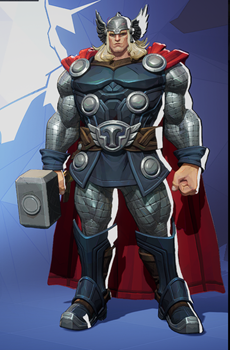In the burgeoning competitive scene of Marvel Rivals, a familiar phenomenon from other hero shooters has quickly taken root: “instalocking.” This term describes the practice of a player immediately selecting and locking in their preferred hero as soon as the character selection phase begins, often with little to no consideration for team composition, strategic needs, or the preferences of their fellow players.
While not exclusive to any role, this trend is particularly prevalent among those who favor Duelist (damage) heroes, sparking considerable debate and frustration within the Marvel Rivals community.
How the Instalock Unfolds
During the crucial pre-match hero selection phase, all players are presented with the opportunity to choose their characters. An “instalocker” will bypass any potential discussion or coordination, rapidly selecting their favorite hero – typically a damage-per-second (DPS) character – to ensure they get to play them.

The immediate consequence of this behavior is often a severe imbalance in team composition. A team might find itself with multiple DPS characters but severely lacking in Vanguards (tanks) to absorb damage or Strategists (supports) to heal and buff allies. This imbalance can cripple a team’s effectiveness, making it incredibly difficult to win matches that inherently demand a balanced roster and cohesive teamwork.
Why the Controversy? The Core Issues
The practice of instalocking is far from universally accepted, stirring up several contentious points within the Marvel Rivals player base:
- Team Imbalance: This is the most glaring problem. When several players instalock DPS, a team can be left with a single tank or support, or, in worst-case scenarios, no dedicated tank or support at all. This severe lack of balance frequently leads to abysmal team performance and quick, demoralizing losses.
- Lack of Flexibility: A defining characteristic of many instalockers is an apparent unwillingness to adapt. Even when the team composition is clearly flawed, or when teammates politely request a role switch to improve balance, instalockers are frequently rigid in their choice, exacerbating the problem.
- Community Frustration: The issue has become a significant source of annoyance for a large segment of the player base. Many players voice their frustration online, attributing losses directly to instalockers and their perceived refusal to cooperate in building a functional team. This ongoing debate has prompted calls for potential solutions, such as the introduction of strict role limits or a dedicated role queue system, similar to those found in other hero shooters.
Is Instalock Ever Justified?
While the prevailing sentiment leans negative, not all players view instalocking as inherently detrimental. Some argue that quickly securing a hero with whom you are exceptionally skilled can, in certain circumstances, be beneficial. This might be particularly true if unique team synergies can be built around specific high-impact DPS characters, allowing a player to truly “carry” from a strong individual performance.
However, even proponents of this view generally concede that communication and flexibility remain paramount for fostering a positive team experience. The consensus points to the idea that rigid instalocking, without any consideration for the team’s needs, rarely leads to the best collective outcomes.
The Broader Hero Shooter Debate Revisited
The prevalence of instalocking in Marvel Rivals has effectively reignited a long-standing debate familiar to veterans of other hero shooters like Overwatch.
On one side, community members advocate for stricter role limits or flexible queue systems, believing these are necessary to guarantee more balanced team compositions and a fairer competitive environment. On the other side, some players staunchly defend the freedom to pick any hero at any time, even if it entails the risk of inherent team imbalance.
In Summary
“Instalocking” in Marvel Rivals refers to the act of immediately locking in a hero at the start of the character selection phase, frequently resulting in unbalanced teams and widespread community frustration, particularly when multiple players quickly opt for damage roles.
While a minority might argue for the value of securing one’s best hero, the overarching sentiment is that teamwork, open communication, and adaptability are the true pillars of consistent success in Marvel Rivals. As the game evolves, how this ongoing debate influences future design choices remains a key point of interest for its growing player base.
Written by:
Christian


